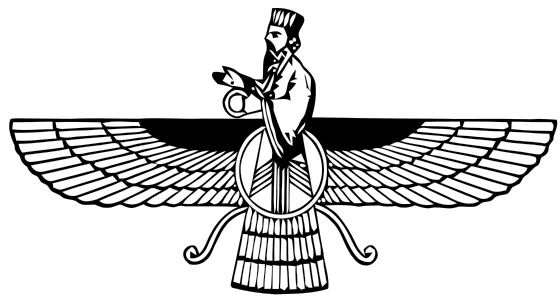Anyone who claims to be on God’s side is a polytheist. To be a true monotheist, one must be either a strict determinist or an agnostic (with regard to the will of God).
I’ve been known to throw around the terms “idol” and “partner of God” ad nauseam among friends. It’s a chip that seems to have appeared on my shoulder during my employment at the Bahá’í World Centre, where a particularly high saint-per-capita ratio gave me some food for thought. Since that time, I’ve slowly come to regard the believers of the Judaic tradition (including most Jews, Christians, Muslims, Bahá’ís, etc.) as worshipers in various polytheistic partnerships and rivalries.
I get the term “partnership” from Islám. The Qur’án makes it clear that God has no partners, and needs no help from anybody.
الْحَمْدُ لِلّهِ الَّذِي لَمْ يَتَّخِذْ وَلَدًا وَلَم يَكُن لَّهُ شَرِيكٌ فِي الْمُلْكِ وَلَمْ يَكُن لَّهُ
All praise is due to God, who begets no offspring, and has no partner in His dominion, and has no weakness, and therefore no need of any aid. (17.111)
The most literal meaning of the term “shirk” (شرك) is a lesser god who might help or otherwise harm God or his cause. Thus, anyone who would diminish his belief in God’s omnipotence by ascribing any power whatsoever to any being other than God would be guilty of this offense. The classic example of this offense is the Christian worship of Christ, as the alleged son and accomplice of God, but the problem of partnership goes much deeper.
Any free agent (individual) with any influence whatsoever must be seen as a partner or rival of God. Some might assert that this is not applicable to the Islamic notion of partnership, because people don’t worship people, but don’t they? Isn’t the attribution of any power whatsoever to any free entity the deification of that entity?
How many self-professed Muslims, I wonder, truly internalize the mantra “all praise be to God (الْحَمْدُ لِلّهِ)”?
This is not a problem for the traditional, deterministic Sunni, the Calvinist Christian, or for Zoroastrians who believe in freewill but not in an omnipotent God (partnership is virtuous in Zoroastrianism); but it is a serious indictment of any observant Muslim who claims to be a free monotheist, with one possible exception.
Many people consider themselves believers in an all-powerful God and at the same time consider the destinies of individuals and society to be up to others than God, but that is not really monotheism; rather, it is a form of polytheism, where the pantheon consists of billions of lesser gods that we casually call immortal souls. The Big God—call him Zeus—may have the power to frustrate the wills of any of these minor Gods, or even punish them for all eternity, but notice: He has never claimed to be able to annihilate a soul; not, at least, for a very long time.
But that Zeus is not the God of the inshá’alláh (إن شاء الله) Muslim. That Muslim’s God, so dominant in the Qur’án, is a God who meddles with the intentions of men; who “seals the hearts of men” as he deems appropriate. He is truly omnipotent, and the only will that men possess is a gift (or a curse) from Him. In other words, all individual will is an expression of divine will.
Blessed is He Who doeth as He willeth by a word of His command. He, verily, is the True One, the Knower of things unseen. Blessed is He Who inspireth whomsoever He willeth with whatsoever He desireth, through His irresistible and inscrutable command. Blessed is He Who aideth whomsoever He desireth with the hosts of the unseen. His might is, in truth, equal to His purpose, and He, verily, is the All-Glorious, the Self-Subsisting. Blessed is He Who exalteth whomsoever He willeth by the power of His sovereign might, and confirmeth whomsoever He chooseth in accordance with His good pleasure; well is it with them that understand! —Súriy-i-Haykal
There is, I suppose, one loophole out of all this for the non-deterministic monotheist: if one were not to claim to be on God’s side, perhaps—say, because one considers the will of God to be utterly inscrutable, one need not be tried as a polytheist in the court of strict monotheism. It is, after all, hard to partner up with God if one doesn’t know what God wants.
This would, of course, require a degree of modesty rarely exhibited among believers, and any mention of divine covenants or pacts would immediately disqualify the believer from this exemption.
